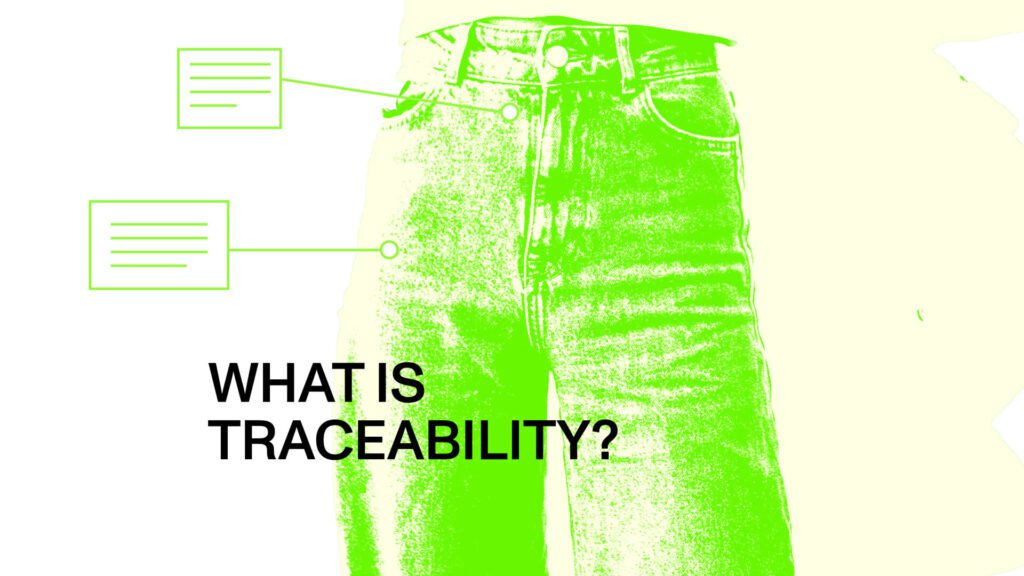Demystifying Traceability


Fashion sustainability is awash with buzzwords these days. Even for savvy citizens well attuned to the likes of greenwashing, the space can be complex and ambiguous and hollow promises from brands remain rife.
Below we outline a concept that is commonplace in fashion’s sustainability lexicon and often dubbed an antidote to many of the industry’s issues: traceability.
Put simply, traceability entails full knowledge of where and how every single part of a garment is made – this equates to full supply chain visibility. Traceability must go beyond where the garments are cut, sewn and trimmed (known as tier one manufacturers) and instead encompass every thread, chemical, button, dye, plant and zip that comprise a garment. It is essential that traceability includes thorough information about all workers along the supply chain too.
The Fashion Transparency Index 2021 from Fashion Revolution demonstrated that while 47% of brands included publish first-tier manufacturer lists, this drops to 27% for processing facilities and plummets to 11% for raw material suppliers. Moreover, 99% of those included do not disclose the number of workers in their supply chain that are being paid a living wage.
Textile supply chains are notoriously complex– they often involve countless people in various locations around the world. Traceability provides a lens via which we can assess and unravel supply chains and address any issues within them.
Podcaster, Sustainable Fashion Advocate and former Factory Manager, Kim van der Weerd, believes that ‘long, complex supply chains’ are no excuse: “The reason brands and retailers don’t know who their suppliers are or what they’re doing is because those same brands and retailers choose to minimize their own financial risk by offloading it onto their supply chains. If brands and retailers had a vested interest in their supply chains, they’d know who their suppliers are, and what their impact is.” Therefore, going forward, brands must adopt a conscious effort towards full supply chain traceability.
Transparency is a crucial step in this equation. Traceability needs to be followed through with communication to the public about supply chains and their impact – this is transparency.
In a 2020 survey conducted by Fashion Revolution; 75% of those surveyed believed that fashion brands should be legally required to provide information about the environmental impacts of their business, and 72% of those surveyed agreed that fashion brands should legally have to provide information about social impacts of their business.
However, this communication needs to be more objective and complete than it so often is. Brands co-opt terms such as ‘eco’ and ‘ethical’ in their transparency strategies without providing substantiated, credible and reliable data to back up these claims. If done correctly, effective communication can give impetus to a new era of sustainability – one in which everyone has influence, knowledge and can act accordingly. Yet at present, we face an overall trust deficit – a 2021 Drapers report revealed that 69% of people do not always trust brands and retailers when they say they are sustainable. Brands have a duty to ramp up traceability and transparency efforts to begin to restore customers’ trust.
Read more about sustainable fashion communication in our article here.
Traceability and transparency are not synonymous with sustainability, but they are both crucial steps to achieving it. They provide the information so that brands can be held accountable to strict environmental and social standards. Without them, we cannot achieve sustainability, though they are not intrinsically industry cure-alls.
With no commonly agreed upon definitions nor current ruling on how these terms can be used within the fashion industry, consumers are left to decipher the false claims from those who are driving real positive change. Greenwashing denies consumers of the power to make better and more informed purchasing decisions … but this is set to change.
Policy can play a huge role in ensuring that businesses adopt a unified approach to traceability by mandating and regulating the industry. The recently announced EU Strategy for Sustainable and Circular Textiles sets out that the European Commission will ‘introduce clearer information on textiles and a digital product passport’ and ‘empower consumers and tackle greenwashing by ensuring the accuracy of companies’ green claims’
You can read the press release from our partner, the Policy Hub, on the Strategy, here.
This month the Policy Hub and Global Fashion Agenda, hosted a Media Masterclass on Transparency in the fashion industry. The masterclass presented media with views on the steps that must be taken to prevent greenwashing and empower consumers. Watch the Masterclass here.